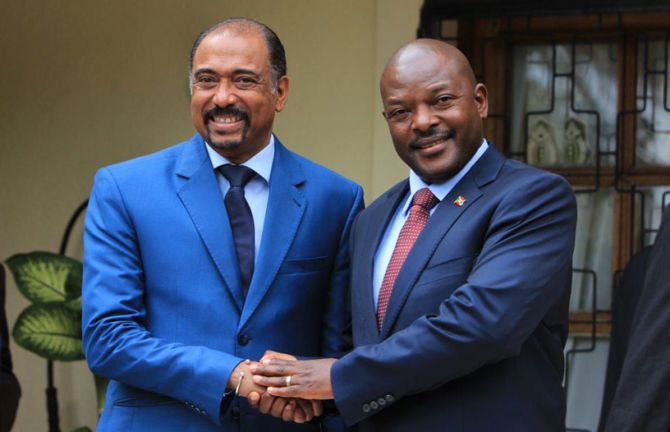

UNAIDS Executive Director Michel Sidibé met with Burundi’s President Pierre Nkurunziza in Bujumbura, Burundi on 9 May 2013.
Feature Story
Burundi to increase access to education and health services to improve its response to AIDS
09 May 2013
09 May 2013 09 May 2013Burundi’s President Pierre Nkurunziza said his country is trying to increase access to education and health services as key elements to effectively respond to AIDS in the country. He met with UNAIDS Executive Director Michel Sidibé on 9 May in Bujumbura, Burundi.
After 13 years of socio-political crisis marked by civil war and political instability the government of Burundi has committed to the reconstruction of the country by focusing its efforts on the rehabilitation of health services and schools destroyed during the armed conflict. The President has also made the response to AIDS a priority and recently adopted a decree which aimed to significantly scale-up services to prevent new HIV infections among children.
Burundi depends on external assistance to finance 95% of its AIDS response. During his meeting with President Nkurunziza Mr Sidibé encouraged him to invest more domestic resources to ensure an effective, efficient and sustainable response.
As part of his official two-day visit to Burundi, Mr Sidibé visited the health centre of the National Association of Support for People Living with HIV and AIDS Patients (ANSS), and he also met with a large group of representatives from civil society.
Quotes
Burundi has focused on the basic tools needed to fight AIDS: access to education, access to health services, access to HIV testing and mobilizing the general population, especially the youth.
I welcome Burundi’s progress in the field of AIDS. The country has gone from 600 people on ARV therapy in 2002 to 29 000 in 2012, HIV testing has increased 10 times in 10 years. I call on Burundi to put the emphasis on reaching the goal of zero children born with HIV by 2015.



